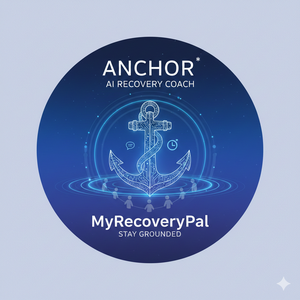
Why Thankfulness Isn’t Just for Recovery — it’s a Lifeline for Anxiety, Grief, and Daily Stress
“Gratitude is the most powerful emotion in the world. If you can train your brain to be grateful for every single thing that happens, when it happens, you’ll be the happiest person on earth.” I read those words on a sticky note years ago, and they felt impossible — until I tried them day by day.
A Lifeline in Recovery — and Beyond
In early sobriety, I carried a notebook to meetings not just to jot down steps, but to capture daily gratitudes: a hot cup of coffee, a friend’s check-in text, the sunrise after a sleepless night. At first, finding something to appreciate felt forced. My mind was wired to hunt for problems — “What if I slip?” or “Why am I still so anxious?” But slowly, pausing to note even one blessing turned fear into faith.
Gratitude Beyond Addiction: A Universal Antidote
The power of gratitude extends far past recovery. In every life challenge — whether panic attacks, relationship strain, or overwhelming workload — thankfulness opens a door:
Anxiety Relief:
- Anxiety thrives on “what ifs.” Counting real, present blessings — “I’m thankful for my steady heartbeat right now” — anchors you to “what is,” calming the mind.
Navigating Grief:
- When grief arrives — over lost relationships, opportunities, or even stages of life — gratitude doesn’t erase the pain. Instead, it honors what remains: laughter shared, lessons learned, or simple comforts like a warm blanket.
Stress Management:
- Chronic stress can make every day feel like a sprint. Pausing to note one small win — a completed email, a healthy lunch, a moment of laughter — turns stress into satisfaction and burnout into purpose.
Everyday Moments, Extraordinary Power
You don’t need a spiral notebook or special ritual. Gratitude lives in the ordinary:
- Morning Light: I let the sun hit my face and say, “Thankful for warmth after a long night.”
- First Sip: That first taste of coffee or tea becomes a toast to small pleasures.
- Kindness Spotted: A stranger holds the door — my silent “thank you” is a mini-celebration of human connection.
- Task Completed: Nailing a presentation or finishing laundry — gratitude for my own effort and endurance.
Each little pause stitches more joy into the fabric of the day.
Gratitude for Every Journey
Recovery taught me the power of thankfulness, but anyone enduring mental health challenges, grief, or relentless stress benefits from this simple shift:
- For Depression: Gratitude creates neural pathways that spotlight positivity, chipping away at the darkness.
- For Anxiety: It anchors you in what’s real, not what’s feared. A practice as brief as listing one good thing can steady even the churning mind.
- For Grief: It honors loss by celebrating love — transforming longing into ongoing appreciation.
Building the Habit, One Breath at a Time
Gratitude isn’t about ignoring difficulties — it’s about choosing to see and celebrate the good despite them. By making thankfulness a daily practice, you cultivate an inner reservoir of peace and resilience, whether you’re in recovery, weathering anxiety, navigating grief, or simply seeking more balance.
I still fumble. Some days, anxiety or sadness blankets me so thickly that gratitude seems out of reach. In those moments, I start small — acknowledging my next breath, the steadiness of my heartbeat, the fact that right now, my phone still works. From there, the world opens again.
Over time, those scattered moments of thankfulness become a steady undercurrent of strength and peace. You train your brain by practicing gratitude exactly when life isn’t easy — because that’s when it matters most.
Today’s Invitation: Pick three points in your day — morning, midday, bedtime — and pause. Name one thing you’re grateful for, no matter how small. Keep it simple, keep it honest, and watch how these micro-moments ripple into a tide of lasting joy.
If you feel this, 👏 clap, share your gratitude habit in the comments, and follow Normalize Sobriety for more stories on thriving in recovery — and in life.

Comments (0)
Login to leave a comment.
No comments yet. Be the first to share your thoughts!